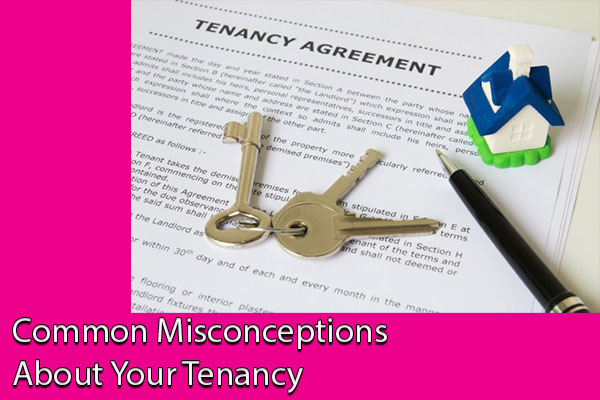
Lease agreements aren’t much fun to read. They seem complex, are often in boring legal speak and are all the same anyway, right?
Wrong. If you are renting, it’s vitally important to be across the terms of your lease, because mistakes can be costly. We spoke to Michelle Raymond, Blink Property’s Licensee in Charge, Qld, to find out some common tenant oversights.
Days of the week
Tenants often think that if you move in on a Friday, your weekly rent is due on a Friday. But the seven days actually ends on a Thursday, so that’s when rent is due. If you’re one day late your rent is in arrears and that can go on your rental record.
Also, when paying by EFT, allow for bank delays or system issues. Be a week ahead to account for unforeseen events and public or bank holidays.
The name’s Bond… rental bond
You know you need four weeks’ rent as a bond, but did you know that if the rent goes up, you need to top up your bond accordingly? Say rent goes up $10 a week, that means adding $40 to your bond.
Three’s a crowd
Lease agreements specify the number of persons allowed to reside on premises. Say the lease is in your name only, but your child is living with you, that’s two people allowed to live in a rental leased by one person. If you meet a new partner and have them move in, you’re in breach.
The same goes for pets. A lease may have specific pet rules, usually near the part about the number of tenants, so make sure you read it up front.
Water consumption
Sometimes, a landlord will seek to charge you for water consumption. They can only do so if:
-The property is individually metered (not part of strata)
-It has a current waterwise certificate (QLD)
– The tenancy agreement states you are to be charged for water.
Entry condition report
When you move in, the agent will note everything down regarding the property’s condition and take photos as proof.
Go through this report thoroughly and take your own notes and photos. You have just three days to then return the report. Down the track, when the exit report is done, you will be expected to have maintained the property to the standard of that entry report…so any issues you overlook will become your problem!
Fair wear and tear: Tenants need to understand what constitutes fair wear and tear. If there’s a brand new carpet in the hallway, 12 months of walking on it will cause some ‘fair wear and tear’. But spilling red wine on it is different.
Lock, stock
Tenants may fall out with an ex housemate and decide to change the locks. But you can’t do so without the landlord’s written approval. Agents need to be able to access the property for routine inspections and emergencies. If someone needs medical assistance, you don’t want agents turning up with a non-working key.
Maintenance
Check the lease for the definition of ‘emergency repairs’. If there’s water spraying all over the place from a burst main, that’s an emergency, but a ceiling fan that’s stopped working is not, even if it’s a hot day!
Anything not deemed an emergency is classed as a routine repair and you must advise your agent in writing.
‘Didn’t want to be a bother’
Make sure the maintenance you’re entitled to is carried out. One of Michelle’s routine inspections led to the discovery of Aldi-bought camping cooking equipment in the tenant’s kitchen.
Turns out the oven and stove stopped working soon after she moved in six months earlier, but she ‘didn’t want to be a bother’, so didn’t report it and just bought the Aldi equipment herself. She didn’t realise it should be fixed for her by the landlord.
Vacating the property
Contrary to popular belief, agents would love to give everyone their bond back if it meant the property was left in a condition where it could be moved into right away. But if a tenant vacates and the property needs cleaning or repairs, that extends the vacancy period at personal cost to the landlord.
Key return
If you don’t return your keys at the end of a lease, you accumulate rent until you do. Even if it’s just one key missing out of the bunch.
Body corporate by-laws
The individual rules of the complex are as important as the lease. These can be all sorts of different specific rules you may not know you need to follow. If you are issued two breaches for the same reason within two years, you can have your lease terminated.
Come clean
Don’t be scared to contact your property manager for advice on any issues. It’s in everyone’s best interest to out problems and property managers can often help.
Form 11
Finally, know your rights. If you are issued with a breach of your lease via a Form 11, you actually have time- usually 7 days- to rectify the breach before any further action is taken.
Let Us Know If You Still Have Questions About Your Tenancy Agreement
Related posts


Choosing the Right Property Manager


